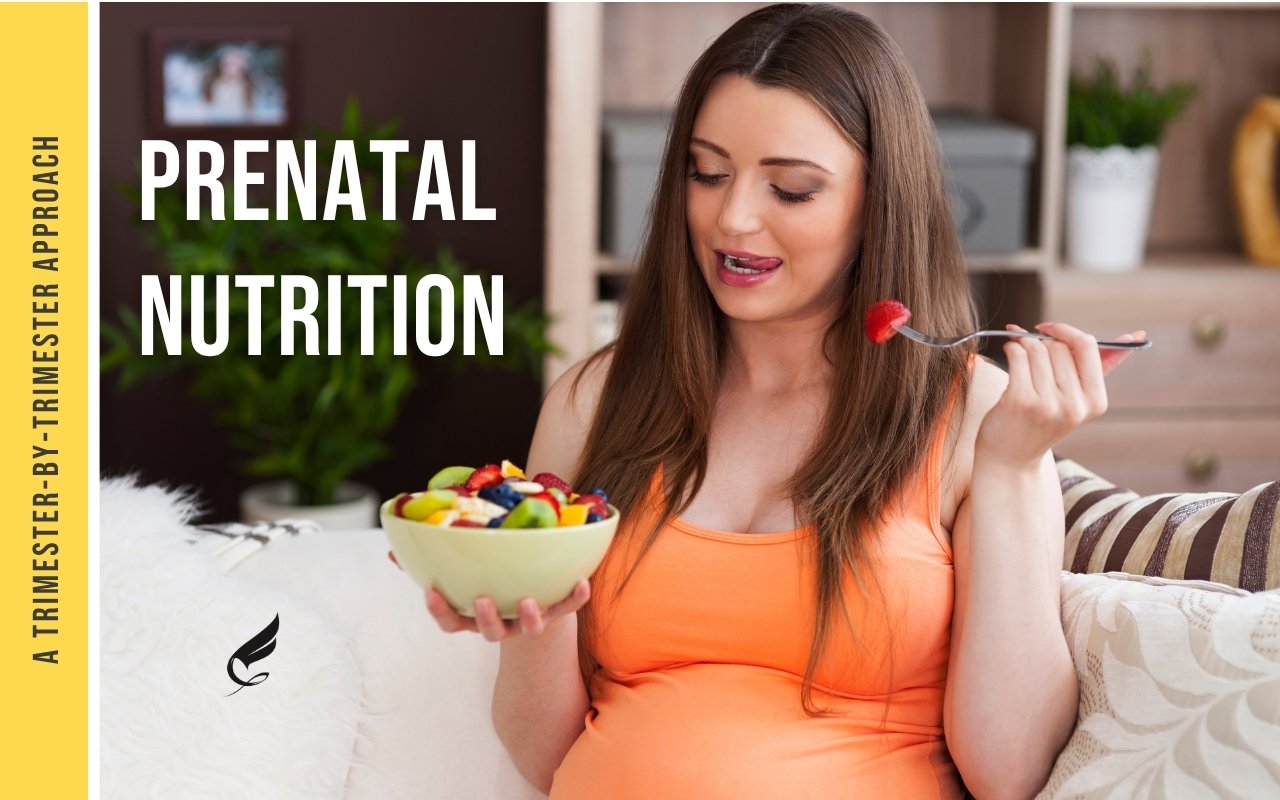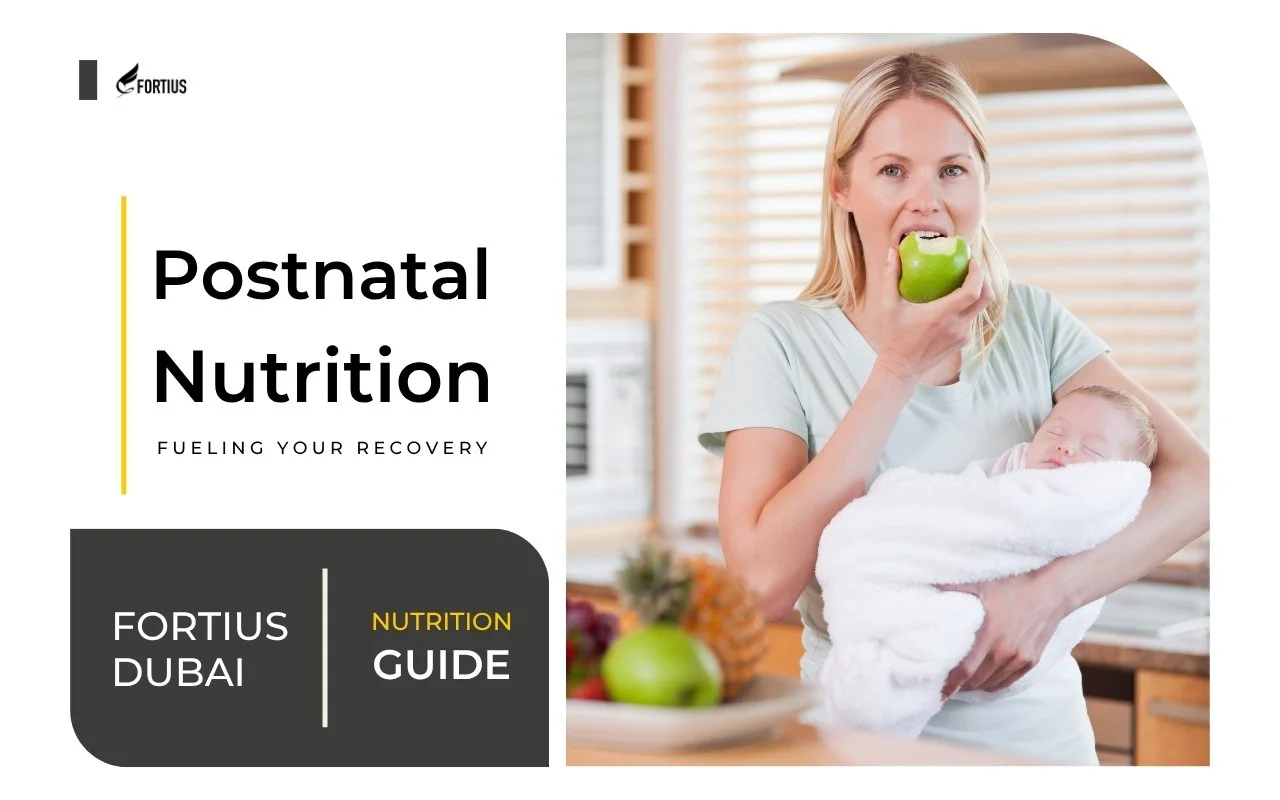Fueling for Two (and Beyond): A Practical Guide to Pre and Post Natal Nutrition
Pregnancy and the arrival of a new baby represent one of the most profound transformations a woman’s body can experience. Excellent maternal nutrition is fundamental to good maternal health and your baby's health. However, amidst all the changes, the advice to simply "eat for two" is outdated.
What an expectant mother needs is a strategic approach to healthy eating that adapts to the unique nutritional needsof pregnancy and the crucial postpartum period. This guide is your science-backed framework for managing pregnancy weight management, reducing the risk of adverse pregnancy outcomes, and fueling your body effectively.
Part 1: Prenatal Nutrition – A Trimester-by-Trimester Approach
Your nutritional needs evolve as your baby grows. Before starting, it's vital that all pregnant women consult with their healthcare professionals to create a plan based on their specific needs and pre-pregnancy BMI (Body Mass Index).
First Trimester (Weeks 1-12): The Foundation This is a critical period for your baby's development, particularly the neural tube.
Key Nutrient: Folic Acid. To prevent neural tube defects and other birth defects, taking a prenatal vitaminwith adequate folic acid is essential. Folic acid supplementation is a standard recommendation from health professionals.
Managing Morning Sickness: This can be a major challenge. Try eating small, frequent snacks of bland, easily digestible carbs like crackers or toast.
Calorie Needs: You don't need extra calories yet. Focus on nutrient quality to lay a healthy foundation.
Second Trimester (Weeks 13-26): Building Blocks & Weight Management As you feel more energetic, the focus shifts to steady growth and managing gestational weight gain.
Key Nutrients: Iron and Calcium. Iron is vital for preventing anemia, while calcium is essential for your baby's developing bones and teeth.
Managing Weight Gain: The goal is to avoid excessive weight gain, which can increase the risk of gestational diabetes and other pregnancy complications. A balanced diet rich in lean meats, vegetables, and whole grains is key. Regular weight monitoring with your doctor is advised.
Calorie Needs: A modest increase of about 300-350 extra calories per day is sufficient.
Third Trimester (Weeks 27-40): Final Growth Spurt Your baby's growth is accelerating, with a major focus on brain development.
Key Nutrients: Protein and Omega-3s. Protein is crucial for your baby's final growth spurt. Omega-3s, especially from fatty fish like salmon, are critical for fetal brain development.
Physical Activity: Gentle physical activity, like walking or swimming, can help manage discomfort and prepare your body for labor.
For a complete guide on how to safely integrate exercise, we highly recommend reading our article on Safe Prenatal Workouts in Dubai.
Part 2: Postnatal Nutrition – Fueling Your Recovery
The postpartum period requires a focus on healing, energy, and, if you choose, lactation.
Focus Area 1: Healing and Repair Your body needs the right materials to heal after a vaginal birth or C-section.
Protein is King: Essential for repairing tissues and rebuilding strength.
Vitamin C: Crucial for producing collagen to help heal wounds.
Proper Hydration: Drinking plenty of water is vital for recovery, energy levels, and milk production.
Focus Area 2: Energy and Postpartum Weight Loss New motherhood is exhausting. The right foods can make a huge difference.
Iron: Replenishing iron stores is vital to combat postpartum fatigue.
Complex Carbohydrates: Choose whole grains for sustained energy.
Weight Loss: The goal is a gradual and safe weight loss. A restrictive diet is not recommended, especially if you are exclusively breastfeeding, as your body needs fuel. Focus on a balanced diet and light physical activitywhen you feel ready.
Focus Area 3: Supporting Lactation (If Breastfeeding) Producing breast milk is metabolically demanding.
Increased Calorie Needs: You'll need around 500 extra calories per day to support milk production.
Nutrient-Dense Choices: The quality of your diet impacts your milk. Continue focusing on a balanced intake of proteins, healthy fats, and complex carbs. Be mindful of your caffeine intake as it can pass into your breast milk.
For a comprehensive plan on how to safely return to exercise and strengthen your pelvic floor muscles, be sure to read our Women's Guide to Postnatal Fitness.
Common Questions and Answers (Q&A)
-
A: The primary concern for health professionals is managing gestational weight gain to avoid adverse pregnancy outcomes. While some weight gain is essential for a healthy pregnancy, the goal is to prevent excessive weight gain. For normal weight women, this reduces the increased risk of pregnancy complications like gestational diabetes mellitus and high blood pressure. For obese pregnant women, careful weight management is even more critical to avoid adverse perinatal outcomes like preterm birth. Your healthcare professionals will provide personalized dietary guidelines based on your pre-pregnancy BMI.
-
A: Folic acid supplementation is critically important, especially before conception and in the early weeks of pregnancy. According to the World Health Organization, adequate intake of folic acid is proven to significantly reduce the risk of serious birth defects known as neural tube defects. While you can get folate from healthy foods, folic acid supplements ensure you meet the required dietary reference intakes for a healthy pregnancy.
-
A: You don't need a "special" diet, but you do need a nutrient-dense one. If you are exclusively breastfeeding, your body requires extra calories (around 500 per day) and nutrients to produce breast milk. The focus should be on a healthy diet rich in lean proteins, healthy fats (which contain important fatty acids for your baby's brain), and complex carbohydrates. Lactating mothers also have increased needs for certain vitamins and minerals, so continuing with your prenatal vitamin is often recommended.
-
A: Yes, you can have a healthy pregnancy on vegan diets, but it requires careful planning to ensure you're getting all essential nutrients. Key areas of focus will be protein, iron, calcium, Vitamin B12, and Vitamin D. It’s highly recommended to work with a health care provider or a nutritionist who can provide dietary counseling to ensure your nutritional status is optimal for both your maternal health and your baby's health.
Conclusion: A Journey of Nourishment
Navigating the nutritional demands of pregnancy and postpartum can feel overwhelming. By focusing on these core principles and working with your health care provider, you can create a healthy foundation for yourself and your baby.
These guidelines are a key part of our holistic approach to female health. For a broader understanding of how to align your fitness and nutrition with every stage of life, we recommend starting with our foundational guide, The Fortius Method for Women.
If you're ready for personalized guidance, book a free consultation with our prenatal and postnatal experts today.






